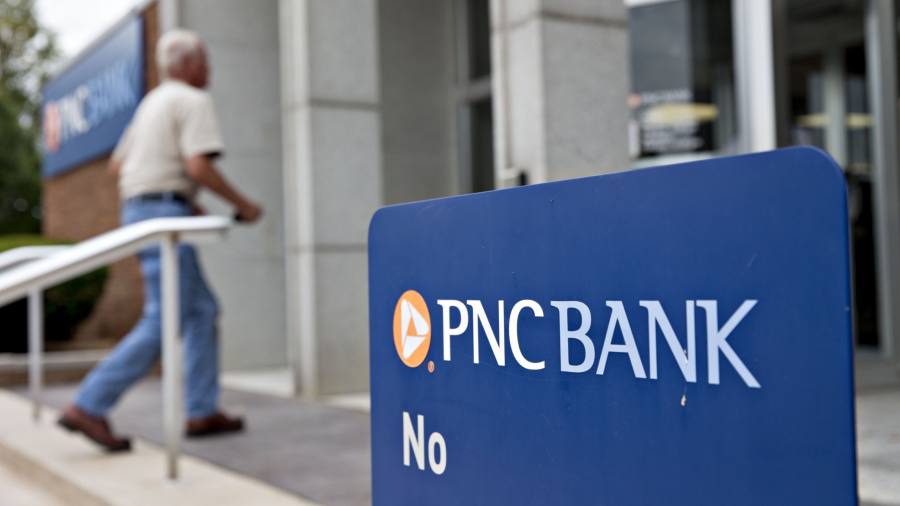
US regional banks are on a roll. The three biggest by assets — US Bancorp, PNC Financial Services and Truist Financial — delivered an average 20 per cent jump in third quarter net interest income thanks to rising rates and growing loan books.
But success invites scrutiny. US regulators are considering plans to impose tougher capital requirements on the largest regional lenders. This could end up hitting profits and shareholder returns.
These banks have benefited from minimal exposure to volatile trading and securities issuance. Returns on average common equity of 15 per cent at PNC and 16 per cent at US Bancorp handily topped figures reported by Citigroup, Wells Fargo and Goldman Sachs.
The KBW regional banking index is down only 8 per cent this year, compared to the 26 per cent decline for the broad KBW bank index.
Large regional banks have escaped some of the tougher rules imposed on big Wall Street banks after the 2008 financial crisis. Their subsequent growth via M&A is prompting a rethink. PNC is America’s sixth-biggest lender after buying BBVA’s US operations. Truist — formed from the 2019 merger between BB&T and SunTrust — is seventh largest. Canada’s Bank of Montreal and Toronto-Dominion Bank have climbed the rankings after striking big deals of their own.
Regulators fear mega regional banks pose risks to financial stability. Possible new requirements could include getting them to raise new loss-absorbing long-term debt.
Would that be overkill? The Fed already stress tests regional banks. The assets of US Bancorp, PNC and Truist, at under $600bn each, are still less than a third of those held by Citigroup. JPMorgan has nearly $3.4tn in assets.
The three banks did not even make it on to the Office of Financial Research’s Bank Systemic Risk Monitor list.
These lenders provide a much-needed counterweight to Wall Street giants. According to Fitch, the new rules could require PNC, Truist and US Bancorp to raise $20bn, $15.6bn and $12bn respectively. This could crimp competition, not increase it.
Lex recommends the FT’s Due Diligence newsletter, a curated briefing on the world of mergers and acquisitions. Click here to sign up.